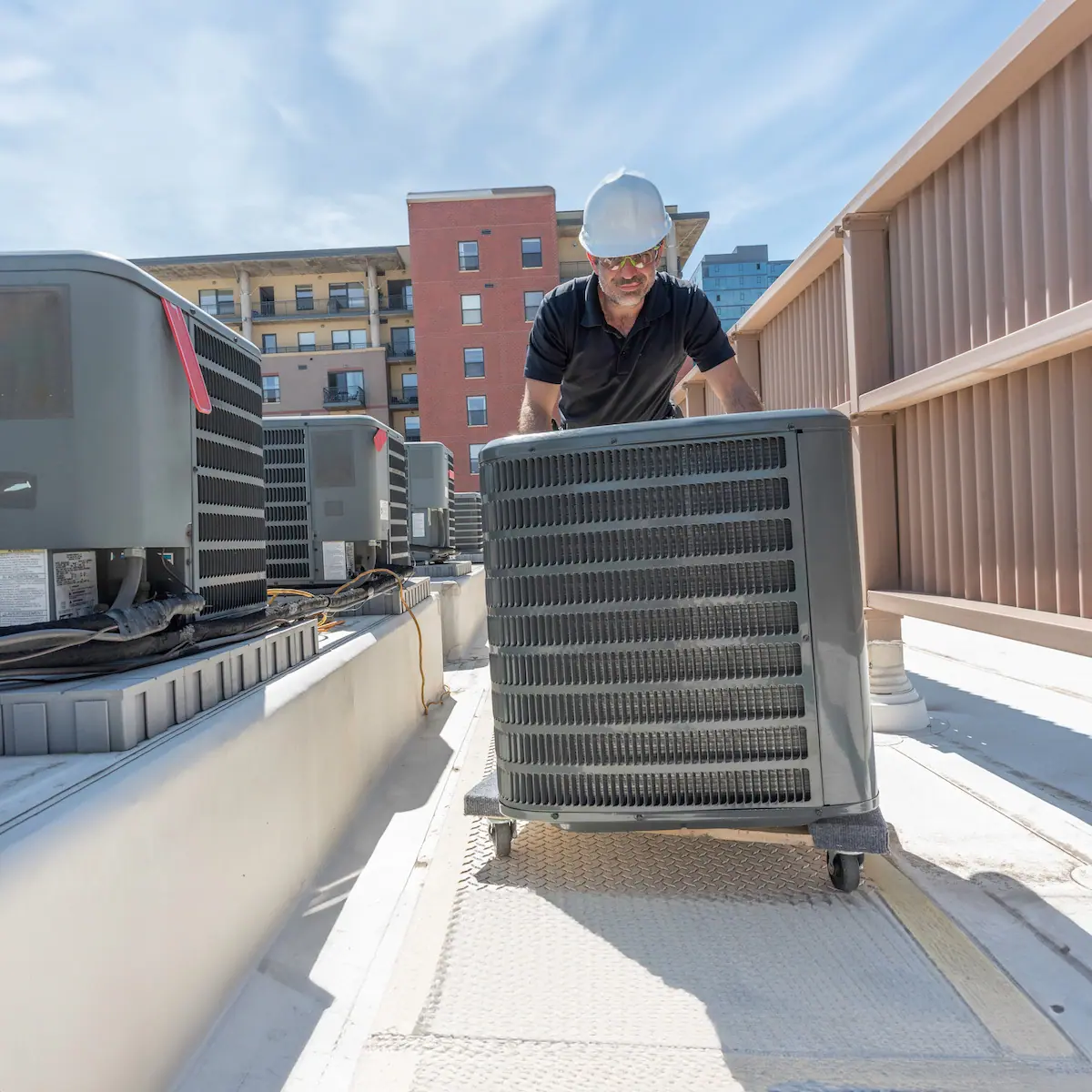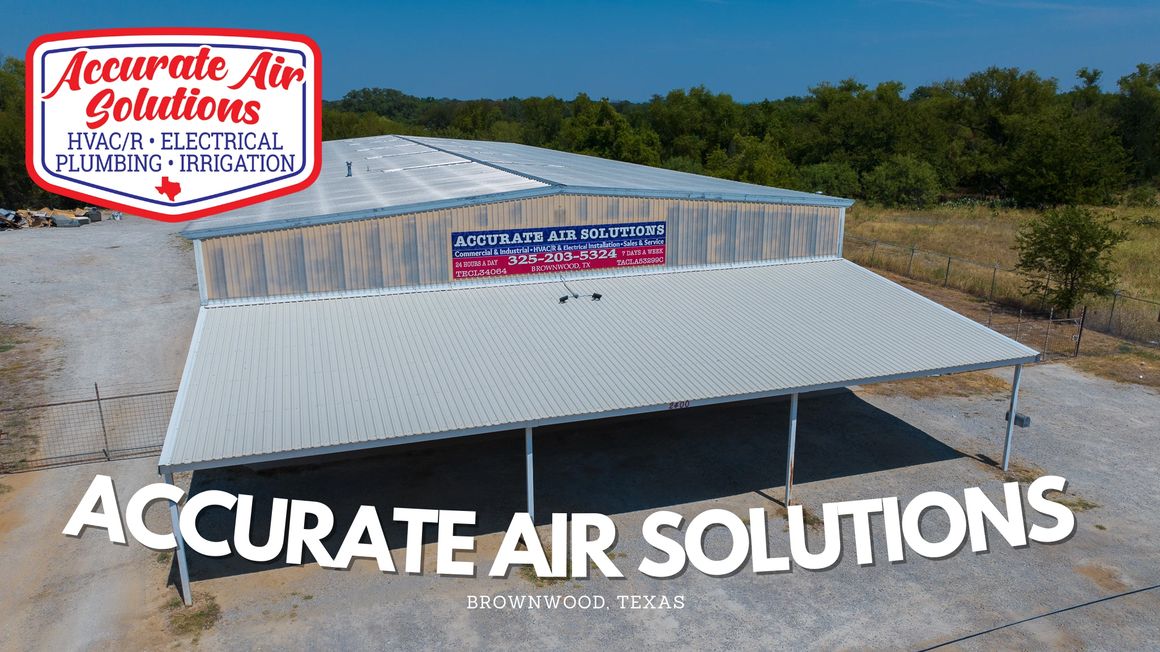When to Ask For Emergency AC Service Brownwood TX: What You Required to Know
When to Ask For Emergency AC Service Brownwood TX: What You Required to Know
Blog Article
Understanding A/c: A Comprehensive Overview to Heating, Air Flow, and Air Conditioning Services
In today's swiftly advancing globe, an essential understanding of a/c systems is no more a high-end but a need for ensuring optimum interior environments. This guide uses a complete exploration of heating, air, and air flow conditioning services, demystifying the intricate interplay of components that govern comfort and performance. As we navigate via the complexities of selecting the ideal system and maintaining it for peak performance, one starts to understand the extensive effect these systems have on energy consumption and sustainability. What usual pitfalls could be threatening your cooling and heating system's capacity without your understanding?
Fundamentals of A/c Systems
Heating, Air Flow, and Air Conditioning (COOLING AND HEATING) systems are crucial parts in modern-day design, continually guaranteeing optimum interior air high quality and thermal convenience. These systems are important to preserving the health, performance, and wellness of passengers in property, commercial, and industrial settings. At their core, heating and cooling systems are developed to control the temperature level, moisture, and tidiness of air, producing a comfortable environment despite external weather.
The basic parts of a heating and cooling system include heating devices, air flow ducts, and air conditioning units. The home heating aspect usually includes either a heater or a heat pump, which warms air to be distributed throughout the building. Air flow, an essential aspect of the system, includes the exchange of outdoor and interior air, reducing interior toxins and controlling wetness levels. This process can be normally or mechanically helped with, usually utilizing fans and ductwork to disperse air successfully.

Picking the Right A/c System
Picking a heating and cooling system entails a mindful balance of expense, viability, and performance to the specific needs of a structure. The choice process begins with an evaluation of the building's dimension, layout, and intended use. Bigger frameworks might require more durable systems, while property buildings might take advantage of smaller sized, extra energy-efficient designs. It is vital to think about the environment of the area, as this will certainly affect the kind of system that best preserves comfy indoor temperatures throughout the year.
Power effectiveness scores, such as SEER (Seasonal Power Efficiency Ratio) for a/c and AFUE (Annual Gas Application Performance) for furnaces, are vital factors when examining possible systems. Greater rankings normally indicate better efficiency and lower operating expense over time. In addition, possible customers need to contrast ahead of time costs with potential long-term savings to figure out the finest monetary choice.
One more crucial consideration is the kind of system-- whether a centralized system, split system, or ductless mini-split is ideal. Each offers unique benefits and restrictions, reliant on setup intricacy and room requirements. Examination with HVAC professionals is a good idea to make certain that the system picked aligns with both the structure's requirements and the owners' comfort preferences.
Relevance of Normal Maintenance
Once the ideal a/c system is chosen and mounted, keeping its performance and long life comes to be a concern. Routine upkeep is vital for making sure that the system operates at peak performance, reducing the danger of unexpected breakdowns. Regular evaluations and servicing can recognize prospective problems before they rise right into expensive fixings or replacements, therefore prolonging the life-span of the equipment.

Additionally, adhering to an upkeep routine can preserve the warranty protection, as several suppliers call for evidence of regular maintenance to recognize service warranty claims. Involving professional a/c specialists for routine maintenance ensures that all parts are assessed precisely and changed as needed. This aggressive method not just safeguards the investment in the heating and cooling system yet additionally promotes a healthier interior environment for residents, improving overall wellness.
Enhancing Power Performance
To enhance power efficiency in heating and cooling systems, it is important to carry out strategies that reduce energy consumption while keeping optimum performance. One effective strategy is the integration of smart thermostats, which permit accurate control over temperature settings based upon occupancy and time of day. These tools can learn patterns and change heating and cooling down routines as necessary, reducing unnecessary power usage.
One more strategy entails regular assessment and cleaning of heating and cooling parts, such as air filters, coils, and ductwork. Clean systems run a lot more successfully, as dirt and particles can block air flow and require the system see post to work harder, taking in even more power. Ensuring appropriate insulation and sealing is likewise crucial, as it stops energy loss and minimizes the lots on HVAC systems.
Moreover, upgrading to energy-efficient equipment, such as variable-speed electric motors and high-efficiency compressors, can substantially reduce energy intake. These elements adjust their speed and output to match the details heating or cooling demand, avoiding power wastefulness.
Purchasing energy recuperation ventilation systems can likewise improve performance by exchanging warm between inbound and outbound air streams, decreasing the requirement for added heating or cooling. By adopting these procedures, a/c systems can achieve exceptional power performance, bring about decreased operational costs and ecological impact.
Troubleshooting Common Issues
When resolving cooling and heating system breakdowns, a structured strategy to fixing can efficiently identify and settle usual issues. The first action includes inspecting the thermostat setups to ensure they are appropriate and functioning. Typically, incorrect settings or dead batteries can cause the system to behave unpredictably. Next, take a look at the air filters. Dirty or clogged filters limit airflow, lowering system efficiency and might lead to getting too hot or freezing.
Check the circuit breakers and merges; tripped breakers or blown integrates can stop system operations. In addition, check out the exterior unit for any kind of blockages or particles that could hinder performance. Regular upkeep of these components can prevent lots of typical troubles.
Listen for unusual noises, which might show mechanical problems such as damaged belts or electric motor problems. Inexplicable increases in energy bills can additionally signify underlying inefficiencies or leaks in ductwork. Ensure that all vents are open and unhampered to promote ideal airflow.

Expert treatment ends up being needed if these steps do not fix the problem, specifically for complex troubles like cooling agent leaks or electric faults. Regular inspections and upkeep by certified specialists can preemptively attend to possible issues, guaranteeing the cooling and heating system operates efficiently and accurately.

Conclusion
To conclude, a thorough understanding of a/c systems is crucial for making certain optimal interior comfort and air high quality. By choosing the appropriate system based upon specific structure demands, the effectiveness and sustainability of ventilation, air, and home heating conditioning solutions can be taken full advantage of. Normal upkeep is essential for preserving system performance and longevity, while power effectiveness can be substantially enhanced with notified methods. Resolving common problems via reliable repairing further makes certain the reputable procedure of HVAC systems, benefiting both companies and home owners.
As we browse via the ins and outs of choosing the right system and maintaining it for peak performance, one starts to understand the extensive effect these systems have on energy consumption and sustainability.Home Heating, Air Flow, and Air Conditioning (HEATING AND COOLING) systems are pivotal parts in contemporary style, constantly ensuring optimal indoor heating and air repair air quality and thermal convenience (air conditioning repair service in Brownwood TX).One more crucial consideration is the type of system-- whether a centralized system, split system, or ductless mini-split is proper. Tidy systems run a lot more efficiently, as dust and debris can obstruct air movement and compel the system to function harder, eating even more energy.In final thought, a complete understanding of HVAC systems is vital for ensuring air conditioning and heating ideal interior convenience and air top quality
Report this page